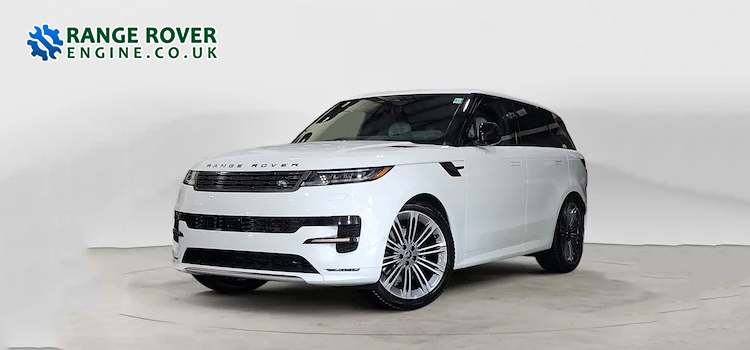Range Rover Engine 3.0 A Detailed Insight

The Range Rover Engine 3.0 is a powerful and efficient engine designed to provide exceptional performance, fuel economy, and durability. This engine is commonly found in various Range Rover models, offering a balance between power and efficiency. Whether it’s the Ingenium diesel or petrol variant, the 3.0-liter engine stands out with its advanced technology, smooth operation, and reliability. This article will explore the features, performance, fuel efficiency, and maintenance of the Range Rover Engine 3.0, along with its advantages and common issues.
Overview of the Range Rover Engine 3.0
The 3.0-liter engine in Range Rover models is designed to deliver excellent power and efficiency. This engine comes in both petrol and diesel variants, catering to different driving preferences. It is equipped with six cylinders, making it a straight-six engine in modern models. The Ingenium 3.0 engine incorporates mild-hybrid technology (MHEV), which improves efficiency and reduces emissions. Additionally, it features advanced turbocharging, improving torque and acceleration. The aluminum construction makes it lightweight while maintaining durability. Overall, the Range Rover Engine 3.0 is a remarkable blend of performance, efficiency, and reliability.
Performance and Power Output
The Range Rover 3.0 engine is known for its impressive performance. The petrol variant produces up to 400 horsepower and 406 lb-ft of torque, allowing for quick acceleration and smooth highway cruising. The diesel variant delivers 300 horsepower and 479 lb-ft of torque, making it an excellent option for off-road driving and towing. The mild-hybrid system assists with fuel efficiency and regenerative braking, enhancing overall performance. With an 8-speed automatic transmission, the Range Rover Engines 3.0 ensures seamless gear shifts. Whether on rough terrain or city streets, this engine offers remarkable responsiveness and reliability.
Fuel Efficiency and Economy
The Range Rover Engines 3.0 delivers a balanced fuel economy while maintaining high performance. The petrol version provides an average of 22-25 mpg, depending on driving conditions. The diesel version is more fuel-efficient, offering 28-32 mpg. The integration of mild-hybrid technology further reduces fuel consumption by storing energy from braking and using it to assist acceleration. Additionally, the start-stop system minimizes fuel wastage in traffic. The combination of turbocharging and hybrid support ensures that the Range Rover Engines 3.0 remains one of the most fuel-efficient luxury SUV engines.
Advanced Technologies in the 3.0 Engine
The Range Rover Engines 3.0 is packed with cutting-edge technologies that enhance performance and reliability. One key feature is the electric supercharger, which eliminates turbo lag and provides instant power. The mild-hybrid system (MHEV) uses a 48V battery, which assists the engine during acceleration. The variable valve timing (VVT) system optimizes airflow, improving fuel efficiency. Another significant feature is the Intelligent Driveline Dynamics (IDD), which continuously adjusts power distribution for better traction and handling. With these advanced systems, the Range Rover Engines 3.0 offers superior performance and efficiency.
Reliability and Maintenance
The Range Rover Engines 3.0 is built with high-quality materials, making it a durable and reliable option. Regular maintenance is essential to keep the engine running efficiently. Key maintenance tasks include oil changes every 10,000 miles, checking the coolant system, and replacing air filters and spark plugs. Additionally, the timing chain system in the engine is designed for longevity, but it should be inspected regularly. Using high-quality engine oil and ensuring proper servicing at authorized Land Rover service centers can extend the engine’s lifespan. Overall, with proper care, the Range Rover Engines 3.0 can last for many years.
Common Problems and Troubleshooting
Like any engine, the Range Rover Engines 3.0 may experience some issues over time. Some common problems include oil leaks, timing chain tensioner failure, and turbocharger issues. The mild-hybrid system may also require periodic software updates to function properly. Another common issue is carbon buildup in the intake valves, which can affect performance. Regular fuel system cleaning and using high-quality fuel can prevent this. If warning lights appear on the dashboard, it’s crucial to get the engine diagnosed immediately to avoid further damage. Proper maintenance and timely repairs help keep the Range Rover Engines 3.0 in top condition.
Comparison with Other Range Rover Engines
The 3.0-liter engine in Range Rover models competes with other engine options, such as the 2.0-liter four-cylinder and 5.0-liter V8. Compared to the 2.0-liter engine, the 3.0 engine offers more power, smoother acceleration, and better towing capacity. However, it is more fuel-efficient than the 5.0-liter V8, which consumes more fuel due to its supercharged setup. The 3.0 engine strikes a perfect balance between power and efficiency, making it a preferred choice for many Range Rover owners.
Why Choose the Range Rover Engine 3.0?
The Range Rover Engines 3.0 is an ideal choice for those looking for power, efficiency, and reliability. Its mild-hybrid system improves fuel economy, while the electric supercharger ensures quick response. Whether for daily commuting, off-road adventures, or long-distance travel, this engine offers exceptional versatility. Additionally, it meets strict emission standards, making it an environmentally friendly option. For those seeking a luxury SUV with a powerful yet efficient engine, the Range Rover Engines 3.0 is one of the best choices available.
The Range Rover Engines 3.0 is a technologically advanced, powerful, and efficient engine. With various enhancements, including a mild-hybrid system, turbocharging, and electric supercharger, this engine provides a smooth and powerful driving experience. Regular maintenance ensures its longevity and reliability. Whether compared to smaller or larger engines, the 3.0-liter option remains a popular choice due to its balance of power and fuel efficiency. For Range Rover enthusiasts, this engine is an excellent investment for performance and durability.


